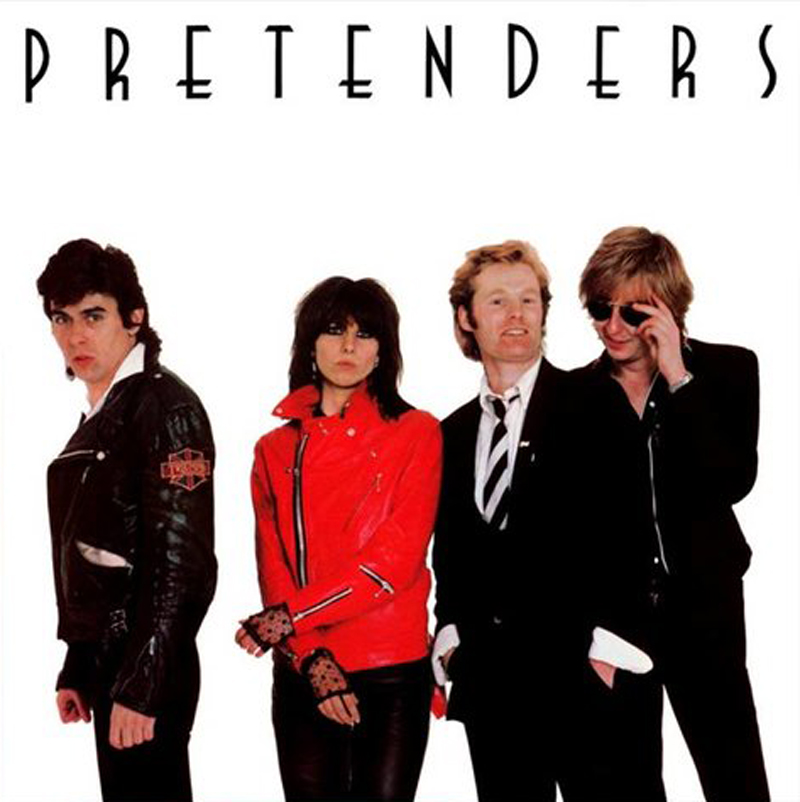1980 was spent mainly in moving our enlarged family to a bigger house, with all the accompanying stress. Hence, music-wise, much the same as the previous year with just enough good new albums to compile a top-ten, which was headed by Pretenders.
The quickly-induced recession of the new Thatcher government soon sounded the death knoll for my sideline business in the restoration of classic cars, so that aspect of life gradually disappeared as I either completed projects and sold them, or quickly sold-on the cars awaiting work in ‘as purchased’ condition to other enthusiasts who were thinking the economic scenario would be short-lived. It wasn’t. Hence by the end of the year, my rented barn had emptied and been handed back to the, somewhat-disgruntled, farmer who had voted for a new start for UK businesses that clearly wasn’t going to materialise any time soon.
The new house had a large double garage, however, so Uncle Mort took up residence in one side whilst the odd straggler received the necessary TLC to make it more desirable to the market. My writing work, on the other hand, began to expand rapidly to fill the time vacated by the cars, as aerospace projects that had been mothballed under the previous government’s reluctance to give any form of State aid were restarted as the new government intimated it would be more accommodating in that area. What time all of this left was spent making the new house more habitable for the expanded family, in particular the more mobile, and inquisitive, younger members!
Music-wise, as the necessary revolution of Punk further diminished, the replacement New Wave movement also began to fragment into more mainstream New Romantic pop bands and some newer, and interesting, rock bands. This fracture allowed some of the more innovative newer acts to further develop their individual styles, while the longer-established artists who had survived the, originally-challenging, transition re-emerged with new material clearly influenced by the experience. So it was that the turntable received a highly-varied bunch of albums, from which the debut by one of those new rock bands finally emerged as the year’s choice.
Pretenders were a four-piece band fronted by American singer-songwriter Chrissie Hynde, and had only formed late in 1978. They had a couple of minor hit singles during 1979, then their third single, Brass in Pocket, went to number one in the first week of 1980 and was followed a couple of weeks later by the release of this, their debut album. It went straight to number one where it spent four weeks, remaining in the charts for most of the rest of the year.
Originally from Akron Ohio, Chrissie Hynde has often said in interviews that, from quite a young age, she always wanted to be in a band, and this may explain her rather frenetic flitting between formative bands in the early/mid-seventies. Whilst studying art at Kent State University, she joined a band with Mark Mothersbaugh, who later formed Devo. After Art School, she came to the UK where she was a journalist at NME for a while, but after a lack of success with getting into a band, she returned to the ‘States. Back in the UK in 1976, she met Malcolm McLaren and tried to start a band with Mick Jones of The Clash, but that didn’t work out. She then joined a new McLaren band as lead guitar, but was asked to leave just before it became The Damned. This was followed by another short-lived collaboration with Steve Strange, who would go on to found Visage.
But it was a demo-tape that she recorded solo that caught the attention of Real Records’ owner Dave Hill, and he provided the encouragement and contacts that helped Chrissie find the other band-members who would become the founding line-up of Pretenders – James Honeyman-Scott (guitar), Pete Farndon (bass) and Martin Chambers (drums). They recorded a demo of five songs, including what became their debut single, a cover of The Kinks’ Stop Your Sobbing. It was this tape that persuaded Nick Lowe to produce that first single, but he then decided not to continue working with the band. So the other early hit singles and this album were produced by Chris Thomas, whose extensive other production credits include four of the first five Roxy Music albums, The Sex Pistols’ Never Mind the Bollocks and the final mixing of Dark Side of the Moon.
Of the twelve tracks on this album, ten were written by Chrissie Hynde. Side One opens with Precious, which has a distinct McLaren-punk influence and leads into The Phone Call which is more rock-based, but still with some edgy Clash-style riffs. Another bridge leads into track three Up the Neck with conventional driving rock rhythms under more sugar-coated Hynde lead vocals. It is the subtle musical contrasts between these three linked opening tracks that provides a lot of the attraction to this album, which never really allows the listener to relax into any particular style as it dips and weaves between snarling at you one minute, then soothing you the next.
Hence, just as you think that track three is leading to a more relaxed pace, so track four Tattooed Love Boys jumps back out at you, demanding attention just like its subject matter would. Then track five provides yet another contrast, an unexpected instrumental track Space Invader written by Honeyman-Scott and Farndon tailing-off into the sound effects from the video game the title suggests. These sound-effects link straight into the next track, The Wait, which picks-up the pace again with some great riffs over co-writer Farndon’s driving bass.
What may have escaped your notice is that side one, thus far, contained none of the hit singles, a very bold statement at a time when most albums started with three singles simply because it allowed record shops to play the more familiar tracks to customers asking to listen in a booth before buying. This is rectified by the final track on side one, that Kinks cover of Stop Your Sobbing.
Side two opens with the second single, Kid, the commerciality of which sets-up a more comfortable feel for this side. This continues with Private Life, the first of three longer tracks on this side and with an underlying hint of reggae rhythms, maybe explaining why Grace Jones had such a big singles hit with her cover version later the same year. But it takes until track ten for their number one hit, co-written by Honeyman-Scott, Brass in Pocket to emerge, and this is followed by probably the nearest to a ballad on this album in Lovers of Today. For the final track, Mystery Achievement, the driving drumbeats return reminding the listener of that first side and almost demanding that it be flipped-over to start again – something that did happen quite regularly that year!
The other albums from which the top ten were selected included The Game by Queen, Scary Monsters & Super Creeps by David Bowie, Adam & the Ants’ Kings of the Wild Frontier, Now We May Begin from Randy Crawford, Vienna from Ultravox, Duke from Genesis, Diana Ross’ self-titled album Diana, Remain in Light from Talking Heads, Pat Benatar’s Crimes of Passion, difficult third albums from Kate Bush (Never Forever), Simple Minds (Empires & Dance), Dire Straits (Making Movies) and Peter Gabriel (his third eponymous album in a row) plus debut albums from The Cure (Seventeen Seconds), Visage and Dexys Midnight Runners (Searching for the Young Soul Rebels).
All three of the debuts are good albums, with Dexys probably shading that group, and of the ‘difficult thirds’ only Never Forever really passed that test, and not only because it contains one of the most perfect three-minute pop singles ever – Babooshka. Sure, Making Movies had a great side one, but nothing much on side two to tempt you to flip it over. Diana was Ross’ tenth solo album, and the best for many a year, if not her best of all. It was also probably the last time she did anything remotely commercial and, unsurprisingly, most of its success was down to the involvement of Nile Rodgers. Scary Monsters had two or three great singles on it, but not a lot else, while Remain in Light was a huge commercial success despite being total art rock, but only a couple of tracks have truly survived the test of time, Once in a Lifetime, obviously, and my personal favourite Listening Wind. Kings of the Wild Frontier is out-and-out pop nonsense but, partially because of that, it makes me smile throughout and, hence, still gets played.
There was another album that kept muscling its way through that lot, although that’s probably the wrong phraseology for such a gentle little album. Dancer with Bruised Knees by Kate & Anna McGarrigle was issued three years previously, and is an intriguing album, a bit folk, bit indie, but it’s a nice listen and it still features regularly on the player even forty years on. Under my self-imposed rules, it couldn’t be considered, so became the year’s ‘One That Got Away’.
The ultimate top three were Pretenders, The Game and Never Forever. Would I change that order? Absolutely not, because listening to the winner with a critical ear forty years on has only reinforced those initial impressions all that time ago – that this is, without a doubt, a classic album, and thoroughly deserving not only of the choice, but of more regular playing today.
If you want to download or stream any of the top three albums, or some of the others, here are the links:
I have also compiled a playlist containing fifty of the best tracks from 1980. To stream the playlist on Spotify, click the logo below:


